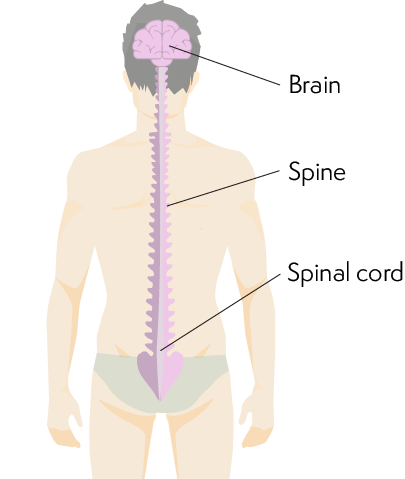Hopeful results for secondary CNS lymphoma
Published on: 1 February 2021MATRix-RICE chemotherapy followed by a stem cell transplant shows favourable outcomes in people with lymphoma that has spread to the brain or spinal cord.

Secondary CNS lymphoma is lymphoma that starts somewhere else in the body but spreads to the brain or spinal cord (central nervous system, or CNS). This can happen either before the lymphoma is diagnosed, or if it comes back (relapses) after initial treatment.
Secondary CNS lymphoma is difficult to treat. At the moment, there are no standard treatment options, and outcomes are generally poor.
The MARIETTA trial, published in the Lancet Haematology this month, tested a chemotherapy regimen called MATRix-RICE in 79 people with secondary CNS lymphoma. MATRix-RICE is an intensive chemotherapy regimen that includes drugs that are able to reach the brain and spinal cord (‘CNS-directed’ therapy). It involves:
- three cycles of MATRix: methotrexate, cytarabine (also known as Ara-C), thiotepa and rituximab
- three cycles of RICE: rituximab, ifosfamide, carboplatin, and etoposide.
In the trial, people also had one dose of chemotherapy directly into the fluid surrounding their CNS (intrathecal chemotherapy) in each cycle of MATRix and RICE.
People who responded to MATRix-RICE went on to have a self (autologous) stem cell transplant that included thiotepa in the conditioning chemotherapy.
Overall, 65% of people responded to treatment with MATRix-RICE followed by a stem cell transplant. After 1 year, 58% had not experienced progression of their lymphoma.
People who had lymphoma that had already spread to the brain or spinal cord when they were first diagnosed had better outcomes than people whose lymphoma spread to the brain or spinal cord at the time of relapse. In the MARIETTA trial, around 7 in 10 of these people had not experienced disease progression after 2 years. This is a dramatic improvement on outcomes typically seen in people with secondary CNS lymphoma.
The MARIETTA trial was conducted in a rare disease, secondary CNS lymphoma, that has previously had a terrible outcome with patients being told they had only months to live. Collaborating internationally and using this more intensive approach, we have identified a regimen that appears highly effective, especially in newly diagnosed patients. We are grateful for the hard work of so many doctors, nurses and trials practitioners and the patients and their carers for their invaluable contribution. Funding from Cancer Research UK and Stand Up To Cancer made this possible.
The MARIETTA trial has shown that durable remissions are possible in this difficult-to-treat condition and offers new hope to people with secondary CNS lymphoma.
1 February 2021
